
Very good and a great value. Isthmus on Himal Chuli.
US Senate Candidate Ron Johnson’s WisPolitics Appearance
A brief clip from Jeff Mayer’s introductory Q & A with Senate Candidate Ron Johnson. from Jim Zellmer on Vimeo.
Johnson faces Dave Westlake in the September Republican primary. The winner will take on 18 year incumbent Democrat Senator Russ Feingold.
In my humble opinion, should the November election turn on economic issues, the Republicans will win (Feingold’s 30 years in the political world is a liability in this scenario). On the other hand, should the election turn on debates, Russ will be tough to beat.
I hope we have a serious competitor to Herb Kohl…..
I attended a Senator Feingold WisPolitics appearance last fall.
I very much appreciate candidates and office holders taking questions from the public in such settings. I asked Ron Johnson a question on three of Senator Feingold’s votes: The 2004 5.25% offshore tax scheme for big business, the Patriot Act and the vote to kill Washington, DC vouchers.
Websites: Russ Feingold, Ron Johnson and Dave Westlake.
Chris Gulker’s Cancer Intensifies and He Begins to Say Goodbye
Your neuro-oncologist, after scanning your most recent MRI, puts her arms around you, and gives you a solemn hug, which was the case with me this past Wednesday. Not that we didn’t guess that something was up – we haven’t been feeling particularly great lately, and we had some weirdness the previous Thursday, falling twice, inexplicably, in a short period. Friday morning our left leg was numb from the knee down and we had a minor, local motor seizure.
Anyway, the MRI reveals 3 new tumors that weren’t in my brain 12 weeks ago. In my understanding of Glioma, this represents a not-untypical course for the end stage of this almost invariably fatal disease. Prognosis at this point? A few months, at best.
God be with Chris and his family.
David Obey Locks Horns with Obama in Budget Battle
This summer is fast turning into a bittersweet swan song for David Obey, the veteran Democratic House member from Wisconsin.
The mercurial chairman of the House Appropriations Committee and stalwart champion of liberal economic and social policy is set to retire after more than 40 momentous years in Congress. But instead of celebrating, Obey is locked in a bruising and highly personal budget battle – not with his Republican adversaries, but with Democratic President Obama and a prominent cabinet member.
In the greater scheme of things, the spending controversy is “small potatoes,” a “lousy little fight” over an asterisk in a multitrillion-dollar annual budget, as Obey describes it. At issue is whether to trim $500 million from Obama’s signature “Race to the Top” education initiative to help avert the threatened layoff of 140, 000 school teachers across the country. Obey believes the proposed trim of about 15 percent of funding for future programs is a small price for the administration to pay to keep teachers on the job now, amid a stubborn recession. But Obama and Education Secretary Arne Duncan are treating it as a potentially devastating assault on their new education program, and have threatened a veto.
Why Your Plane is Always Full
I learned long ago the cruel but true principle: other people’s travel problems are not interesting.* Corollaries: other people’s traffic problems, and other people’s weather (“you won’t believe how hot/cold/dry/wet/windy it is here!”), also are not interesting. We feign sympathy, but as long as our own flight is on time, traffic on our highway moves along, the weather’s nice where we are, we don’t really care. (*Exception: unless the occasion for an otherwise-interesting travel narrative, from Paul Theroux to Atlantic site posts.)
Therefore I obviously am not “complaining” in mentioning that I got up before 5:30am today to get an 8:15am flight out of Dulles, only to find an email from the airline saying that the flight had been delayed to 10:45. The inbound flight — from Dubai! — is late, and there are no spare planes to go on to San Francisco. OK — gladder to know now than before leaving the house for the airport, though ideally it would have great to know last night. Nothing to be done. But it was a serendipitous intro to the very next item in the email inbox: a report on how substantially airline capacity continues to be cut. There just are fewer flights anywhere, and more of them are full, than in yesteryear.
Airlines have been very successful at using information technology to slice and dice pricing and demand. Overall, fares are certainly up for most travellers….
A Few Photos
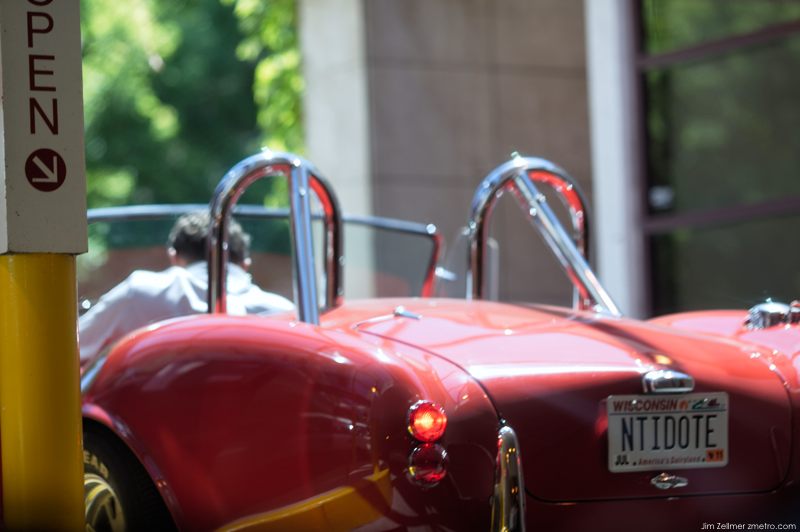
I believe this is a rather rare Shelby Cobra.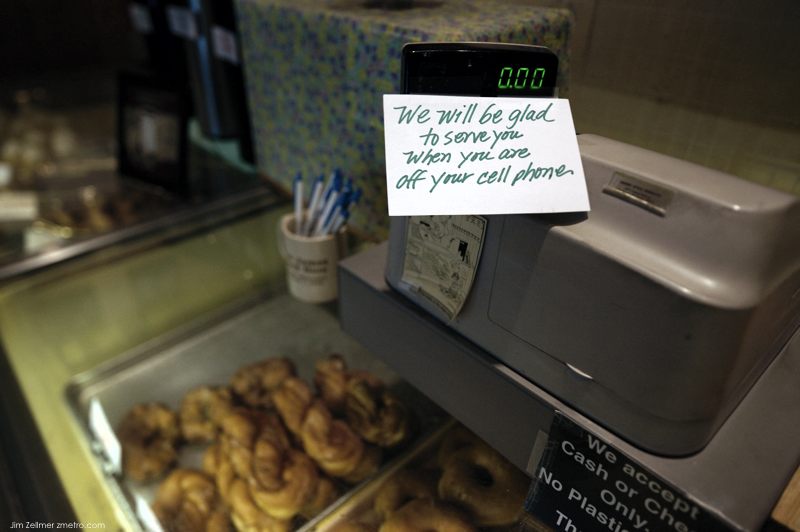
A sign of the times: “We will be glad to serve you when you are off your cell phone”.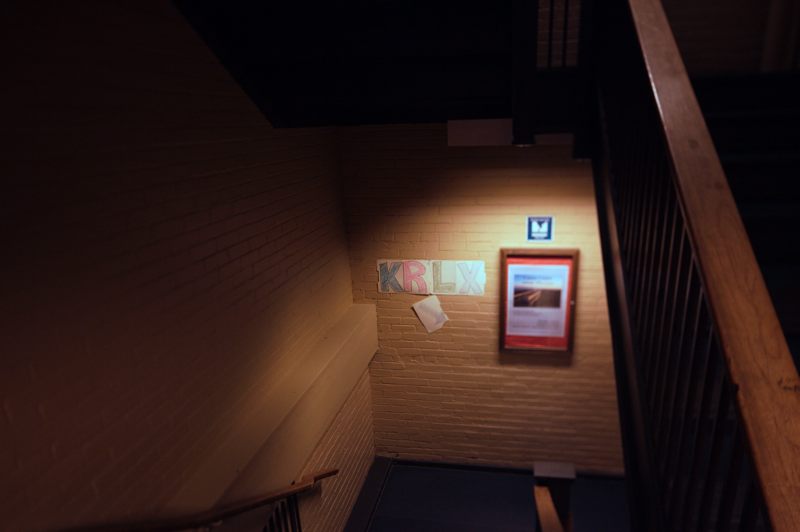
KRLX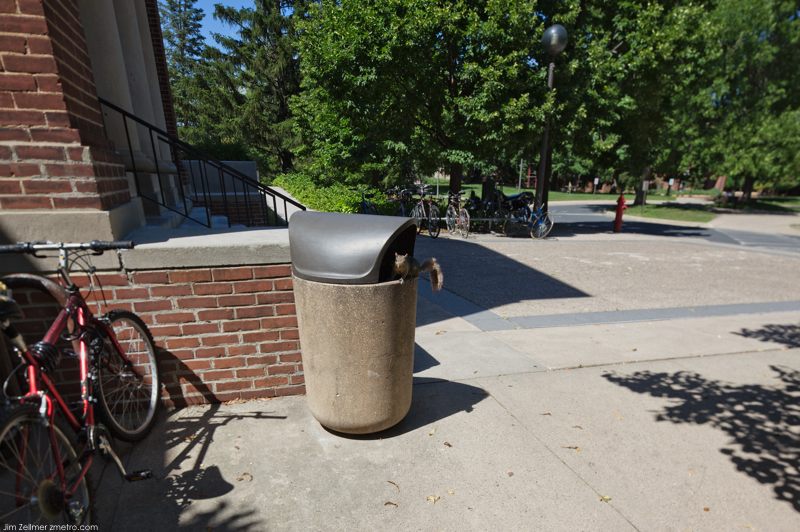
A squirrel seeking dinner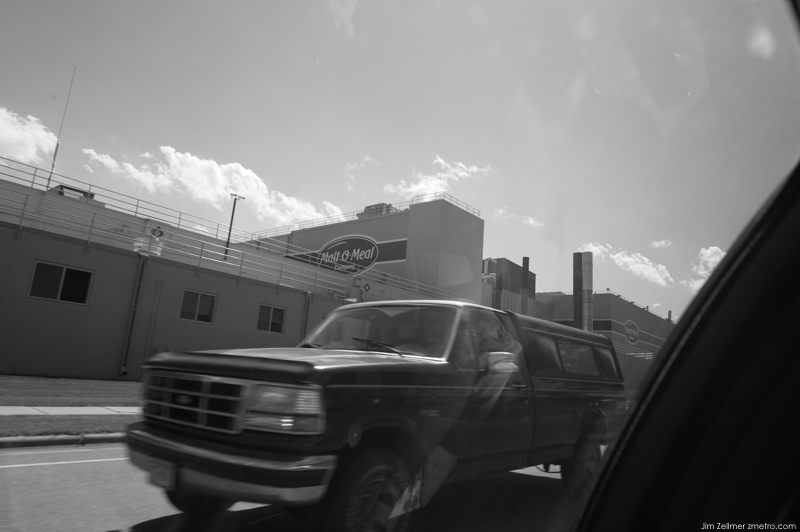
Malt O-Meal
Cooling off…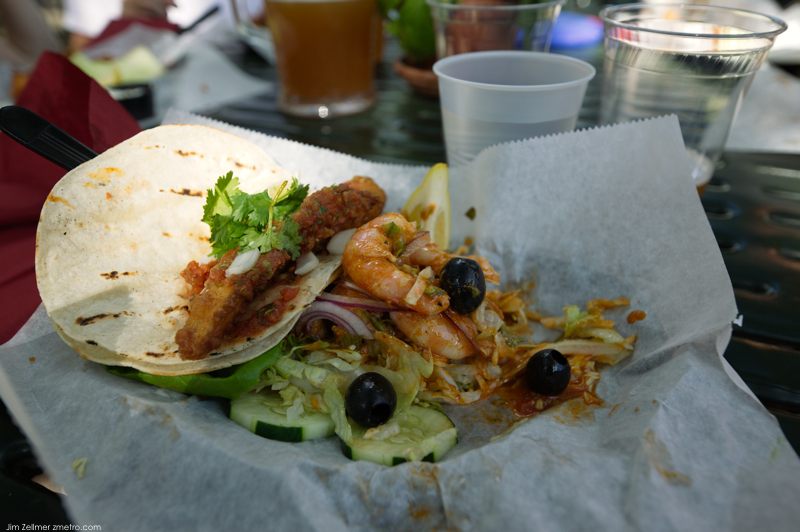
Dinner at Sea Salt Minneapolis
Art Fair on the Square Madison
The Energy Future
The winter of 1979 in southern California reminded people why they had migrated to LA over the decades. The daytime temperatures were in the mid-70s, and the LA basin’s summer smog had disappeared, revealing the snowcapped San Gabriel Mountains.
At Neonex Leisure that day, we were brainstorming the recreational vehicle of the future. At the time we built America’s largest RV, the Arctic Sun, a combination van/pickup truck pulling a 55-foot-long 5th-wheel trailer. Now Neonex Canada had put our California division in charge of designing the company’s next Class A Motorhome.
Each of the other five U.S. managers gave their impressions of the future of the recreational vehicle, disclosing visions of startling grandeur. I was more flippant: “I bet it’s a Honda with a Coleman tent.” Three months later the Second Energy Crisis hit. We shut down our RV plant in two days flat, and I was back in Texas in five.
My point is that, if you had asked every energy or automotive issues guru what the future would hold for automobiles just before the winter of 1978 – 79, the answer would have been completely different if you’d asked them the same thing just 12 months later. That’s what an energy crisis can do.
My joke about a Honda with a Coleman tent was weirdly prophetic. But my fellow managers’ visions of million-dollar motorhomes would also turn out to be spot on — 20 years later.
Insider Trading Inside the Beltway
My new article, Insider Trading Inside the Beltway, has been posted to SSRN. Now it just needs to find a nice law review home somewhere in the top 50.
Abstract: A 2004 study of the results of stock trading by United States Senators during the 1990s found that that Senators on average beat the market by 12% a year. In sharp contrast, U.S. households on average underperformed the market by 1.4% a year and even corporate insiders on average beat the market by only about 6% a year during that period. A reasonable inference is that some Senators had access to – and were using – material nonpublic information about the companies in whose stock they trade.
Under current law, it is unlikely that Members of Congress can be held liable for insider trading. The proposed Stop Trading on Congressional Knowledge Act addresses that problem by instructing the Securities and Exchange Commission to adopt rules intended to prohibit such trading.
Michael Hastings of Rolling Stone on the Story that Brought Down Gen. McChrystal and Exposed Widening Disputes Behind the U.S. Debacle in Afghanistan
In a rare extended interview, we speak to Michael Hastings, whose article in Rolling Stone magazine led to the firing of General Stanley McChrystal. Hastings’ piece quoted McChrystal and his aides making disparaging remarks about top administration officials, and exposed long-standing disagreements between civilian and military officials over the conduct of the war. The Senate confirmed General David Petraues as McChrystal’s replacement on Wednesday, one day after McChrystal announced his retirement from the military on Tuesday after a 34-year career.
Lunch with Luca Cordero di Montezemolo
Screaming down the home straight of Ferrari’s test track at 200kmph an hour in a classic red 458 Italia, I suddenly don’t feel like lunch. The Fiorano track near Bologna in central Italy is, at 3km, not long. But, partly in an attempt to impress the test driver next to me with some fast cornering, I feel as if I have left part of my stomach on one of its hairpin bends. Matters fail to improve as, in heavy fog untypical of early summer, I take the car off the track and, rather more slowly, on to the winding roads of the Apennines, heading for Ferrari HQ in nearby Maranello.
I am still spinning slightly when we pull into the car park just before the company’s elegant and aristocratic chairman, Luca Cordero di Montezemolo, who somewhat incongruously arrives in a small Fiat. He explains that his journey from Rome has been a nightmare as fog diverted his helicopter and forced him to take trains and cars – hence the Fiat. Nevertheless he appears in characteristically enthusiastic mood. “I’ve just been to a conference at the Vatican [on the financial crisis]. Fantastic,” he explains. “Fantastic” is a word Montezemolo uses a lot. Ferrari is “fantastic”, Italian food is “fantastic”, his new high-speed train company, NTV, is “fantastic”, as is the 458 Italia I have been driving.
On my way out he hands me a white postcard. “This is what I give to all new employees at Ferrari,” he says. Looking at it in a Ferrari 599 on the way back to Milan, it looks to me like the perfect credo for Montezemolo. It starts: “The real secret of success is enthusiasm. You can do anything if you have enthusiasm … With it there is accomplishment. Without it there are only alibis.”
Clusty Search: Luca Cordero di Montezemolo